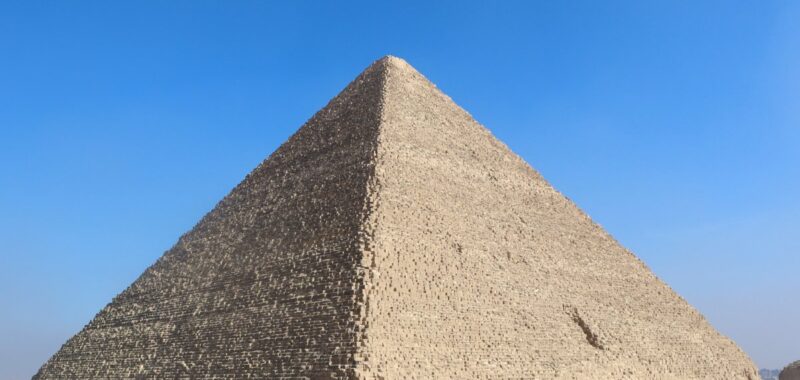Egypt’s tourism ambitions are being held back by a shortage of hotel rooms — and the foreign investment needed to build them. That’s according to Sherif Fathi, Egypt’s Minister of Tourism and Antiquities, who says the country’s long-term tourism goals hinge on rapidly expanding accommodation capacity.
“We’re happy with developments, but we are extremely challenged by the lack of rooms to accommodate the demand we experience,” Fathi told journalists this week at a press conference at Arabian Travel Market in Dubai. “We need hotel rooms. That’s why we’re encouraging all types of investments in rooms and hotels.”
Egypt hopes to attract 30 million tourists annually, but officials say hitting that milestone will require doubling the country’s current hotel stock. Last August, Prime Minister Mostafa Madbouly said the North African nation was aiming to add between 200,000 and 250,000 rooms.
Shifting Targets
The target of attracting 30 million visitors was announced in 2023, and the aim was to reach it by 2028. It was extended to 2030 at the end of 2024, and then to sometime between 2031 and 2032. Fathi said the timeline depends on hotel capacity: “If we don’t double the number of rooms, the vision will not be achieved. But if we double before 2031, the goal could be met earlier.”
For reference, Egypt currently has around 220,000 rooms open and a further 28,600 hotel rooms in the pipeline as of the end of last year, according to Lodging Econometrics’ Hotel Construction Pipeline Trend Report.
In 2024, Egypt had 15.8 million tourists, a 6% increase over 2023. The minister expects a more than 10% increase this year.
“Last year we did well. 6% wasn’t our target, but geopolitically, around us… I’m extremely okay; I’m happy with the growth. The first three months [of 2025] came at a 25% increase above last year. So we’re changing the [year’s] forecast…to higher than 10%.”
Foreign Direct Investment in Egypt
Fathi emphasized that public funds won’t be used when it comes to tourism development. “The government is not building hotels,” he said. “It’s all either FDI or private sector.”
Last year, Egypt received approximately $43.75 billion in foreign direct investment, up sharply from $10 billion the year before, led by the UAE with $20.42 billion. Other key contributors included the U.S., U.K., Saudi Arabia, and Switzerland, according to Central Bank of Egypt data.
While Fathi didn’t put a price tag on what’s needed to meet the room target, he said the ministry is working on a unified platform to better direct and measure investments.
“What we are trying to do is to have an investment opportunities bank. [The platform will] create one marketing unit for all investment opportunities in Egypt. If we succeed in doing this, I think it’s going to be a breakthrough,” Fathi said.
The General Authority for Investment and Free Zones already has something very similar to this called the ‘Invest in Egypt Map’, showing opportunities across the country. On that map, just 29 hotel development opportunities are mentioned as of May 2, 2025.
What is Being Built?
But developments are happening. In February last year, Egypt signed a $35 billion deal with the UAE to develop its Mediterranean coast, a plan which includes building numerous hotels. More recently, but on a smaller scale, the Abu Dhabi Fund for Development last month announced a $120 million plan for a 302-room Sofitel near the Giza Pyramids.
Egypt’s private sector still faces hurdles, including currency devaluation and inflation. The country has turned to the International Monetary Fund (IMF) for support, with a four-year $3 billion deal signed in late 2022 — later expanded to $8 billion as the country faced mounting financial pressure.
Fathi stressed that in terms of tourism development, the IMF will play no part. “We are not involved in the IMF and all these kinds of government-IMF talks. The private sector is the main driver of building new hotels and investment in the tourism industry.”
Travel Stock Index Performance Year-to-Date
What am I looking at? The performance of travel stocks within the Skift Travel 200. The index includes travel companies publicly traded across global markets.
The Skift Travel 200 (ST200) combines the financial performance of nearly 200 travel companies worth more than a trillion dollars into a single number. See more travel sector financial performance.

